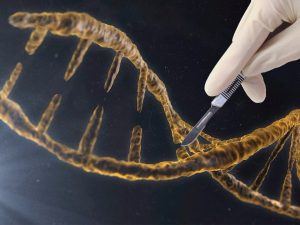Erin Brodwin in Business Insider:
 Earlier this week, reports linking the blockbuster gene-editing tool CRISPR to cancer in two studies sent investors scrambling to pull out of companies working on the technology, which is being studied for use in everything from food to medicine. The tool’s precise cut-and-paste approach to gene editing allows for a range of promising medical applications, from curing sickle cell anemia to preventing some forms of blindness. On Monday afternoon, headlines suggested that cells edited with the tool were more likely to become cancerous. Within hours of the reports being published, shares of Editas Medicine, CRISPR Therapeutics, Intellia Therapeutics, and Sangamo Therapeutics — all of which are trying to bring CRISPR to medicine — took a significant tumble. But scientists who study CRISPR and other methods of gene editing call the reports “overblown.” They say the link to cancer is tenuous at best and an incorrect interpretation of the results at worst. “This is absurd,” John Doench, the associate director of the genetic perturbation platform at MIT’s Broad Institute, told Business Insider. “There was a massive overreaction here.”
Earlier this week, reports linking the blockbuster gene-editing tool CRISPR to cancer in two studies sent investors scrambling to pull out of companies working on the technology, which is being studied for use in everything from food to medicine. The tool’s precise cut-and-paste approach to gene editing allows for a range of promising medical applications, from curing sickle cell anemia to preventing some forms of blindness. On Monday afternoon, headlines suggested that cells edited with the tool were more likely to become cancerous. Within hours of the reports being published, shares of Editas Medicine, CRISPR Therapeutics, Intellia Therapeutics, and Sangamo Therapeutics — all of which are trying to bring CRISPR to medicine — took a significant tumble. But scientists who study CRISPR and other methods of gene editing call the reports “overblown.” They say the link to cancer is tenuous at best and an incorrect interpretation of the results at worst. “This is absurd,” John Doench, the associate director of the genetic perturbation platform at MIT’s Broad Institute, told Business Insider. “There was a massive overreaction here.”
Like many other researchers involved in the space, Doench read the two studieshighlighted in the recent report and published in the journal Nature Medicine. Instead of concluding that the technique causes cancer, Doench read the papers and thought it highlighted facts about how cells behave in response to perceived threats. Most of these are already fairly well-known to people who study gene editing. Tweaking a cell’s DNA is a violent process; when it is done, cells respond by trying to defend or repair themselves. This is one of the biggest hurdles facing most cutting-edge gene editing approaches today. It is not unique to CRISPR. “I’m honestly trying to figure out why this has generated such a response and I really can’t,” Doench said. “Everything I can see is just related to the stocks and finances and not in anyway related to the science.”
More here.
